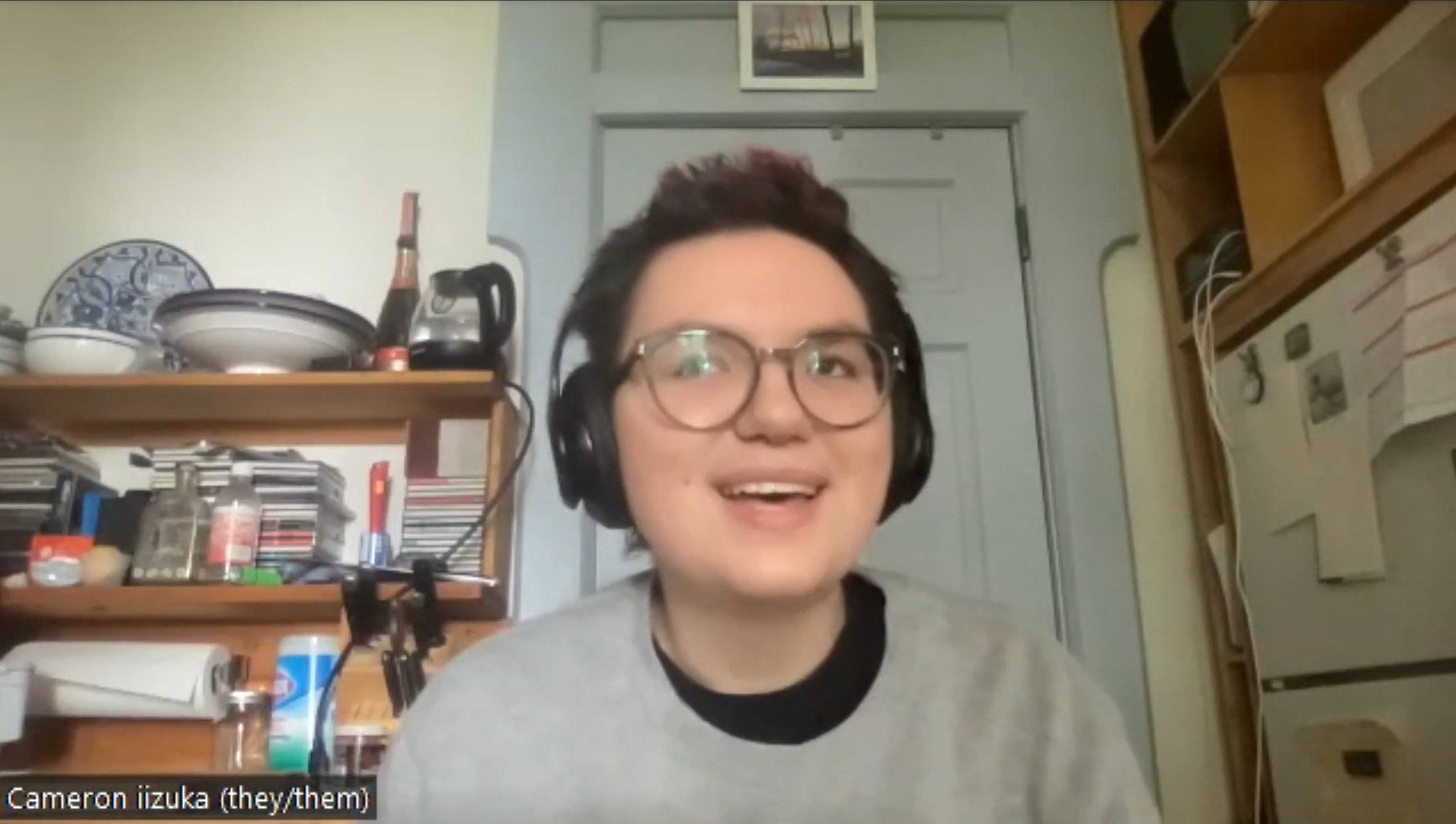Editor’s Note: Respond to Racism is excited to announce a new addition to our team, Cameron iizuka. Among other activities, Cameron will be writing our bi-weekly newsletters and penned the following the essay in the most recent edition. Make sure to sign up for our newsletter so you don’t miss any RtR news or future essays.
After watching Amber Boydston’s gentle and brilliant presence last week at our January meeting, I felt compelled to revisit Audre Lorde’s essay “The Transformation of Silence into Language and Action” as a profound work representative of abolitionist living. Audre Lorde was a seminal and self-proclaimed “black, lesbian, mother, warrior, poet” who devoted her life to living with pleasure, love, and as her whole radical self. She worked as an educator, organizer, and prolific writer in New York City from 1932-1992 alongside other radical writers and thinkers like June Jordan, Alice Walker, and Adrienne Rich. Lorde wrote “Transformation of Silence—” as part of The Cancer Journals which chronicled the 18 months after she discovered a malignant tumor in her right breast and had a radical mastectomy. Lorde’s collection navigates the brave work of exercising one’s voice after being disabled, racialized, sexualized, and objectified by white supremacist capitalist patriarchy. Her vulnerability when faced with her diagnosis and her personal negotiation with imminent death resonates further, as even today black women are twice as likely to die of breast cancer as white women, even though breast cancer incidence rates are similar. Amber talked throughout our January meeting about the ways in which racism and other oppressions are built into every facet of our society, including non-carceral seeming systems, like medicine and wellness. These systems are working exactly as they were designed, and in part, Audre Lorde reveals the necessity of our personal and communal rejection of the conformist silencing while we all suffer, or while we bear witness to the suffering of others.
Lorde died of liver cancer in 1992, just twelve years after surviving her dance with breast cancer. Like how the AIDS Epidemic acted as a massive temporal constriction for queer people, cutting off decades, lifetimes of queer development and liberation in the US in the 1980s and ‘90s, I wonder how much more loss of artistry, poetry, writing, creativity, love, and life itself we’ve felt from the deaths of those like Audre Lorde, who maybe in a truly liberated world would have lived longer and more fully. She lived and fought at a time where to be labeled disabled was to forfeit one’s agency. Near the end of her life, she was denied routinely by colleges and literary awards when she applied for disability leave and reduced hours when the pain from her treatment was too much.
A life of bodily pain, mental illness, chronic fatigue, and overworking is a lived experience many BIPOC and those in the Global Majority share, but aren’t afforded the time, money, or resources to rest, heal, and recover. (For more on how disability accommodations and recognition of in/accessibility are still largely Western and exclusive concepts, check out this article about the epidemic of mental illness and trauma in Palestinians during an ongoing genocide.) Even still, Lorde never stopped writing and working, if not without trying.
“I want to live the rest of my life, however long or short, with as much sweetness as I can decently manage, loving all the people I love, and doing as much as I can of the work I still have to do. I am going to write fire until it comes out my ears, my eyes, my noseholes — everywhere. Until it’s every breath I breathe. I’m going to go out like a fucking meteor!” -Audre Lorde, Dec. 1985
To anyone who finds resonance with Mother Lorde, may we all have the strength to show up, the courage to speak out, and the bravery to rest and nurture ourselves as much as we do for others.
To anyone who has heard of Audre Lorde but not read her work, or who maybe this is your first time learning about her, may your relationship with her flourish and grow. You have a bounteous world of words from this brilliant mind, here’s some resources to help get you started.
(Just a few) Audre Lorde resources!
Essays:
“The Transformation of Silence into Language and Action”: for finding voice when lost and alone
“The Master’s Tools Will Never Dismantle the Master’s House”: for dreaming (and actualizing) your own liberation
“Poetry Is Not A Luxury”: for realizing poetry’s radical and ancestral potentials
“Uses of the Erotic: The Erotic As Power”: for incorporating love, pleasure, trust, intimacy, and even eroticism into praxis
Poems:
A Litany for Survival: for resilience
Movement Song: for memory palaces and breakups
Recreation: for transcorporeal love
Sister Outsider: for remembrance and holding
Thanks for reading!
In Solidarity,
Cameron @ Respond to Racism
About Cameron: Hey, I’m Cameron, the new communications lead at RtR. I’m a 20 year-old queer, autistic, disabled, Asian, trans writer and activist. I graduated from LOHS in 2021 and am currently on leave from Columbia University. I’ll be responsible for the bi-weekly newsletter and other publications on Instagram and potentially revived social media accounts. In the bi-weekly newsletter, you’ll find information on upcoming local events, footage and presentation notes from previous meetings, messages from leaders of RtR, and original essays. I’m excited to be reintegrated into this community by getting to hear from more of you at meetings and through our correspondence.

